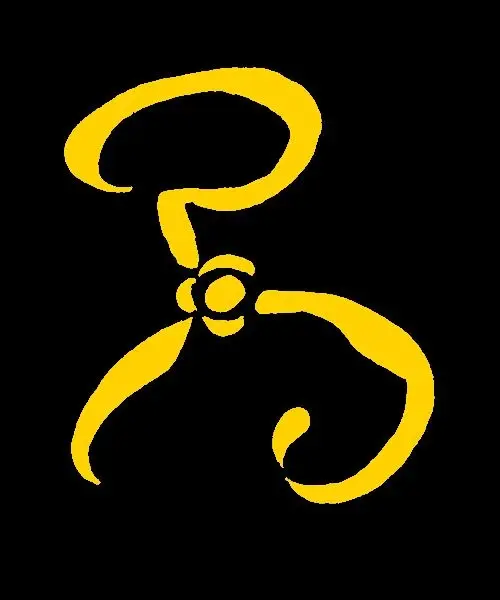Ah shit. Reading is hard sometimes.
Seeker of Carcosa
- 0 Posts
- 26 Comments
A pint is 568ml.
Edit: the extra 30ml might be accounted for with the patented Guinness widget, a little ball of nitrogen gas that ruptures and forms a foamy head when the can is cracked.
GPT4 is wrong and it doesn’t require a price per litre comparison to prove it.
4 cans at 440ml cost £4.50. Therefore 12 cans at 440ml cost £13.50, £1.50 less than 12 cans at 330ml.

 4·1 year ago
4·1 year agoHand them 4 pre-gens and run them through the Haunting for Call of Cthulhu. It’s made to be a pick up and play introductory scenario.

 3·1 year ago
3·1 year agoI learned all too quickly to never go all in on Isengard attacking Rohan. Despite all laws of probability, my opponent has a 100% chance of having both ent cards and a companion near Fangorn forest.
Roadside Picnic by Arkady and Boris Strugatsky. Inspired the STALKER video games.
At some point in the 20th century, aliens esentially fired some rockets filled with garbage at the earth. The fallout of these rockets created several “exclusion zones” around earth. The book chiefly follows speculators who risk crossing military cordons in order to recover and sell salvaged tech.

 10·1 year ago
10·1 year agoThe 19 that is face up is the check after modifiers are added. Your unmodified roll is 9 and you have a +10 modifier

 4·1 year ago
4·1 year agoTurns put I’m a bit basic with my choice of Dragonborn Paladin (Oathbreaker Dark Urge). I’m a sucker for charisma classes that can hit like a truck.
I’m hoping for some unique interactions as a tiefling next time around.

 6·1 year ago
6·1 year agoYou must be mistaken. I’m the one you originally replied to and I made no speculation. I said that the video isn’t an act (it demonstrably isn’t, having watched his channel for years), and that some people are better suited as friends than as romantic partners. In relationships that don’t involve abuse or infidelity, it’s common for former partners to be civil or even friendly to one another.
You know nothing about his relationship with alcohol, other than the fact that he has a Youtube channel where he reviews whisky. Having a collection of whisky is not evidence of substance abuse, just as me having a thousand books doesn’t mean I have an unhealthy relationship with books.
None of this is making me uncomfortable. I have grandparents and parents who married young, grew up to have different priorities in life, and remained good friends afterwards. I’ve just got back from my baby brother’s wedding where they all had an amazing time sharing a villa and having a party. I’m a happier, more mature person from having witnessed amicable breakups where people remain good friends afterwards.
You’re the one who seems personally affected by someone eight years ago reviewing whisky and breaking up with their wife. The moment you see an ostensibly healthy continuing relationship, your first thought is abuse. That’s on you. You may need to reflect on why that’s your kneejerk reaction.

 10·1 year ago
10·1 year agoI don’t think it’s particularly helpful or even healthy to speculate about abuse in every conceivable scenario. The guy’s a whisky aficionado who goes on frequent trips to distilleries and has uploaded and average of a whisky related video every other day for several years. You can see by the thumbnails a story of him growing a wall of whisky over the years. That factor alone is difficult to live with if you’re not on the same wavelength as that person. It’s not, however, an issue that would require you to burn bridges after separation.

 9·1 year ago
9·1 year agoIt’s not a stunt. Some people just make better friends than partners. If there was no animosity during the break up, there’s no reason they can’t remain friends.

 18·1 year ago
18·1 year agoI need a HD train suplex.

 4·1 year ago
4·1 year agoMy go to is the Call of Cthulhu Sessions, moody jazz mixed with noir and ambient horror. Even though it’s anachronistic, I also use it for my gaslight games, as ragtime doesn’t lend itself to horror.

 5·1 year ago
5·1 year agoLooking slick. Definitely jealous with my hand grinder and moka pot.

 41·1 year ago
41·1 year agoIt’s been a while since I’ve run D&D but there’s some info to be gleaned from how Pathfinder runs swarms. My procedure is based off of some PF2e rules together with some house rulings for off the cuff swarms, and is intended to be quick, minimising admin and adding some exciting flavour to the encounter:
-
Choose your creature(s) which occupy the swarm
-
Set the AC to the lowest AC among creatures in the swarm
-
Don’t worry about the precise number of creatures in a swarm. Just do it based on size. If you want a rough idea of how many creatures fit into a swarm of a certain size, have 4-6 creatures of the same size occupy a space one size category larger. 4-6 groups of creatures of a certain size form a group of one size category larger.
-
Take average HP of the most populous creature in the swarm. For each size category the swarm is above that creature’s size category, multiply that average HP by 4.
-
Characters can occupy the same space as the swarm with no penalty
-
Any creature sharing space with the swarm is automatically hit, assign damage based on the median among damage values in the swarm (5 snakes and 8 kobolds, probably does the damage of a kobold. Could roll luck to see if they take a random venomous bite)
-
Swarms are immune to grapple, restrained, prone, etc. Swarms are vulnerable to area spells.
-
Optional: Mind altering magic could affect a swarm hive mind as if the swarm is a single creature. This is completely discretionary. You could probably manipulate a swarm of bees with a single charm spell, but not a city-spanning mob.
-
Optional: Give resistance to B/P/S damage. If a significant number of creatures in the swarm have a resistance (down to your judgement), add that resistance to the swarm.
-
Optional: Characters in the middle of a swarm could probably swing wildly and hit something. Give players advantage if they are attacking the swarm while stood in the swarm
-
Optional: Be narrative about the health of the swarm. Every so often mention one or two of the swarm falling dead or disengaging from the conflict.
-
I usually go to short stories, or old sword and sorcery novellas. For the former my go to stories are Lovecraft’s Cthulhu Mythos, Robert E Howard’s Conan, and Isaac Asimov’s Robots. For the latter I prefer Michael Moorcock’s Elric of Melniboné, Fritz Leiber’s Fafhrd and the Gray Mouser, and Jack Vance’s Dying Earth. If I’m feeling uninspired or experiencing a block, knocking out a few of these stories always sets me straight. They take next to no time to read and are great fun. I don’t get tired of rereading them.

 3·1 year ago
3·1 year agoI don’t mind romance in my fantasy as long as it’s done well. I found a lot of terrible and extraneous “romance” in Teen/YA fiction growing up which convinced me at the time that I disliked any romance in my fantasy. Turns out what I actually dislike is clunky sex scenes written by Mormons whose only experience is being the third at a jump hump.

 7·1 year ago
7·1 year agoI use Bookwyrm and it works for what I need: track reading, rate books, view reading lists of people who have read the same books. My partner uses StoryGraph which does seem a lot cleaner and more polished, but I haven’t felt the need to switch yet.

 2·1 year ago
2·1 year agoI’ve recently started setting myself goals. I used to read non-stop before university. During my undergraduate degree I slowed down to finishing only a few books per year. By the time I started my PhD, where basically my entire 9-5 is reading and analysing dense 40-page mathematical papers, I’d completely stopped reading for pleasure.
Last year I set myself a 1 book per week goal and found that I was actively factoring reading time into my daily schedule, which I really appreciated. I managed to get through a lot of my reading bucket list this way, but at the end of the year I decided I wouldn’t set that kind of goal again. I ended up powering through some novels that I would’ve preferred to DNF purely because it was Thursday and starting a new novel would set me back.
This year I haven’t set a hard goal. I’ve decided I am happy with one book per month, and if I’m reading properly then I blaze past that. I’m very much enjoying the ability to augment my main reading with other reading. I’m currently participating in a book club over at !lovecraft@ka.tet42.org which I find very rewarding and I wouldn’t have had the spare reading time to participate in this time last year.

Depends on your frame of reference. When traversing the surface of a globe, your described concept of a straight line isn’t intuitive.